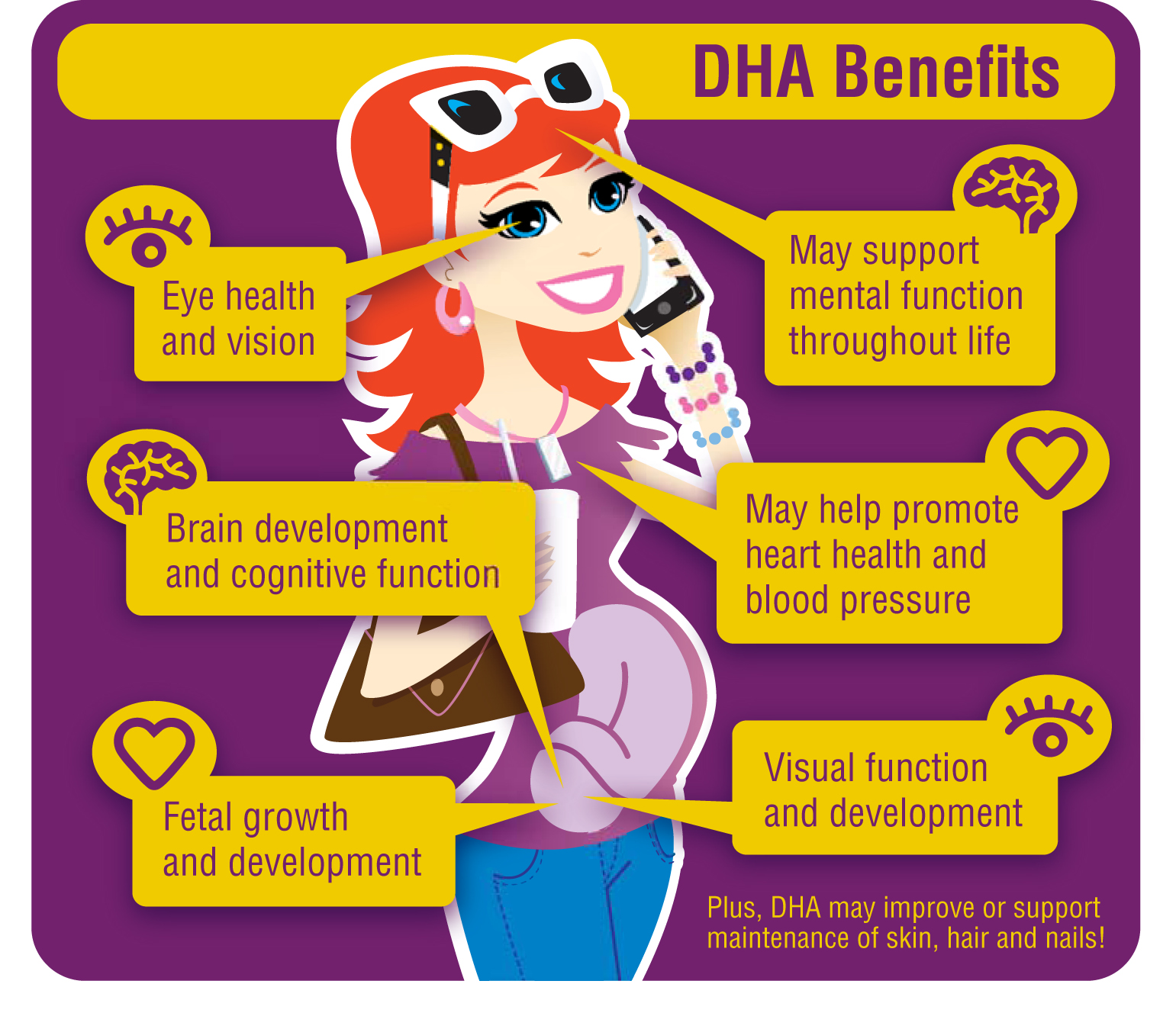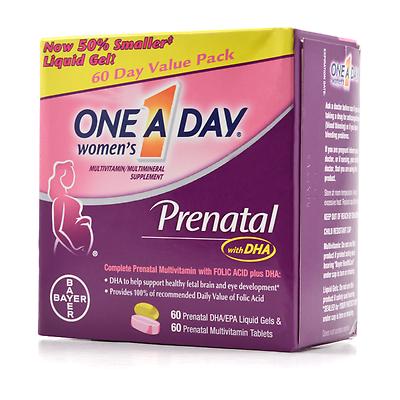DHA In Pregnancy

Contents:
- Why Take DHA?
- What Products Are the Best DHA Sources?
- What to Use: DHA or EPA?
- DHA Research
- DHA Effect on Fetus
DHA During Pregnancy
DHA (docosahexanoic acid) is one of the most essential omega-3 fatty acids. DHA refers to the category of omega-3 polyunsaturated fatty acids. This is one of the most important structural components in human body and serves an important role in the structure and function of all our cell membranes.
Why Take DHA?
DHA is formed in the human body, but in small quantities. It is required that humans take DHA additionally, with food.
Polyunsaturated fatty acids are important for proper development of the human body and maintaining health through life. Research has confirmed that DHA has positive effects on cardiovascular system. The use of DHA may also be helpful in cancer prevention and the reduction of inflammation processes.
The studies of DHA’s effect on brain structures show excellent results. It is known, that the necessary amount of DHA in brain affects human memory, information perceiving ability and other cognitive and behavioral functions.
What Products are the Best DHA Sources?
The sources of DHA are mustard oil and flax oil, flax seed, and chia. However, most commonly people consume DHA from seafood. Fish, in turn, receives DHA from algae, which is a perfect source of this acid.
The main problem is the impossibility of getting the necessary amount of DHA from food – a man cannot eat such quantity of seafood per day! In addition, fish can accumulate pollutants contained in water, including heavy metals, such as mercury, which can be a health threat.
Therefore, the best decision is the use of vitamins containing DHA. It allows taking the proper amount of DHA, even if you are not fond of seafood. One capsule of AlvoGenius supplement per day is quite enough! The docosahexaenoic acid, contained in Alvo Genius is obtained from specially grown environmentally algae.
What to Use: DHA or EPA?

Docosahexaenoic acid (DHA) and eicosapentaenoic acid (EPA) are necessary for proper human development and maintaining health. Scientists have proved the positive effects of these omega-3 fatty acids on brain function. DHA and EPA provide immediate energy inflow in organism, improving memory and thinking abilities. However, it is very important to keep a balance between DHA and EPA.
DHA and EPA connect to the same cell membrane receptors and can therefore compete with each other. If the levels of EPA are high, it means that the levels of DHA in cell membranes will be lower. The connection of DHA and the receptor favorably affects baby’s nervous system and visual development.
Therefore, DHA consumption should prevail over other kinds of omega-3 fatty acids consumption, especially during pregnancy and baby’s first years of life. AlvoGenius supplement contains DHA in the amount of 200 mg that is recommended by the World Health Organization (WHO) as beneficial for child’s growing organism.
DHA Research
High DHA levels in a woman’s body during pregnancy period give positive effects on her baby’s health during the 1st year of life:
- According to researches, children treated with a great amount of DHA in utero, possess better vision (visual acuity and color perception).
- It is proven that the necessary amount of DHA increases pregnancy duration and reduces the risks of premature birth.
- The use of DHA by an expectant mother will help to improve her child’s motor skills throughout his life period.
- Taking DHA supplements by pregnant and lactating women will improve their children’s attention span. The study showed that children at age of 5 years, who received DHA from breast milk in the first 4 months of life, showed much better results in attention assessment, compared to the children of non-supplemented mothers.
- In one study, arterial pressures were measured in children under the age of six. It showed that those children, who received DHA and AA (arachidonic acid), had lower blood pressure throughout life. The studies suggested that children, who received DHA, had a lower risk of developing cardiovascular diseases during adulthood.
DHA Effect on Fetus
A child’s brain starts developing on the first weeks of pregnancy. For its development, the organism needs nutrients, including DHA. A woman should accumulate the necessary amount of DHA long before pregnancy to provide her child’s full development.
Due to rapid development of neurological processes in brain (nerve fibers development and synaptic connections formation), a child’s organism may lack vitamins. If a mother's organism lacks DHA, her child can be prone to the risks of pathologies of nervous system and visual organs.
The European Food Safety Authority (EFSA) analyzed the DHA effect on infant’s brain and visual system. The results were amazing: the children of women who consumed great amount of docosahexaenoic acid during pregnancy, possessed good vision and excellent nervous system.